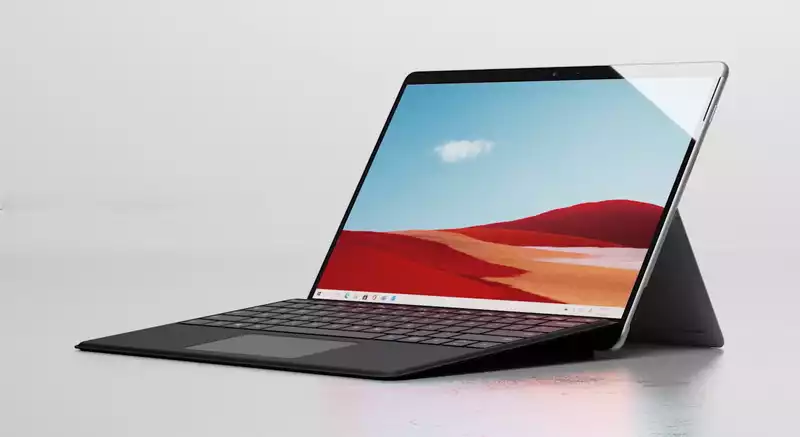The Surface Pro X 2020 has emerged to usher in the Windows-on-ARM revolution that Microsoft failed to accomplish with the first version of this 2-in-1. And there are several upgrades that attempt to take the best tablet crown away from the iPad Pro 2020.
The biggest upgrade is Microsoft's new SQ2 chip, which promises better performance (in some configurations). In addition, all models can now expect up to 15 hours of battery life.
Other perks include a new platinum finish and three new colors for the Surface Pro X keyboard. However, the most interesting question is how well the ARM version of Windows will perform now that Microsoft says it will increase the number of app partners. Here is everything we know about the Surface Pro X 2020 so far.
The Surface Pro X is scheduled to arrive on October 13 and will be available in multiple configurations. The entry-level Surface Pro X starts at $999 with Microsoft's older SQ1 processor, 8GB of RAM, and 128GB of storage; stepping up to 256GB of storage will cost $1299.
If you want the new SQ2 chip, the Surface Pro X is $1,499. This model also comes with 16GB of RAM and 256GB of storage; the $1,799 configuration ups the storage to 512GB. [The Surface Slim Pen ($144) and Surface Pro X keyboard ($139) are optional; Microsoft sells a keyboard and pen bundle for $269.
The new SQ2 processor, available in higher configurations of the Surface Pro X, promises improved performance along with better battery life. The SQ2 chip, co-designed with Qualcomm, also offers AI acceleration, improved camera quality, and improved audio performance.
The Surface Pro X is as thin and portable as before, with the tablet measuring just 0.28 inches thick and weighing 1.7 pounds. Adding the keyboard brings the total to 2.37 pounds. New on the design front is a new Platinum color option
that joins the matte black version of the Surface Pro X. In addition to black, Ice Blue, Poppy Red, and Platinum have been added. All of these keyboards come with a holster for the Surface Pen, which charges when connected.
The Surface Pro X has two USB-C ports, one more than the iPad Pro. However, these ports are not Thunderbolt compatible. Microsoft also includes a Surface Connect port for connecting to an external display; it does not include a microSD card slot for expansion, which the Surface Pro 7 does.
The Microsoft Surface Pro X 2020 continues to feature a 13-inch PixelSense display with a 2880 x 1920 resolution and 3:2 aspect ratio. The previous model's panel produced very good results in our tests, exceeding 400 nits and 103% of the sRGB color gamut.
Many reviewers had compatibility issues with third-party apps on the original Surface Pro X, but Microsoft says it is making progress with Windows on ARM. It is working with Adobe and others to increase the number of app partners and improve the app ecosystem.
Microsoft also has an App Assure program designed to help developers address compatibility issues with Windows on ARM apps, but how far Microsoft has progressed will Only time will tell.
In addition, there are new versions of Microsoft applications optimized for Windows on ARM. These include the Microsoft Edge browser and Microsoft Teams. In addition, Microsoft will roll out x64 emulation to the Windows Insider Program in November.
The Surface Pro X 2020 continues to feature two cameras: a 5MP front camera captures 1080 video and supports Windows Hello face sign-in. The 10MP rear camera has autofocus and can capture up to 4K video.
I would like to see 5G connectivity at this time, but thankfully all versions of the Surface Pro X 2020 will offer Gigabit LTE connectivity. You can add your own SIM card or order an AT&T or Verizon SIM card through Microsoft.
According to Microsoft, the new Surface Pro X 2020 can be used for up to 15 hours on a single charge, which is two hours longer than the previous model. Additionally, the 2-in-1 is capable of fast charging, reaching 80% in less than an hour.
The new Surface Pro X appears to be a step in the right direction for Microsoft. The performance of the original Surface Pro was behind that of the iPad Pro, so it will be interesting to see if this new SQ2 chip can close the gap. More importantly, how well is Microsoft addressing the app compatibility issues with the ARM version of Windows? If you are going to spend this much money on a tablet or 2-in-1, it should be versatile enough to run all the apps you need.
.









Comments